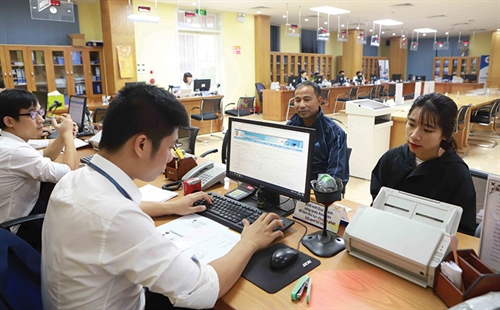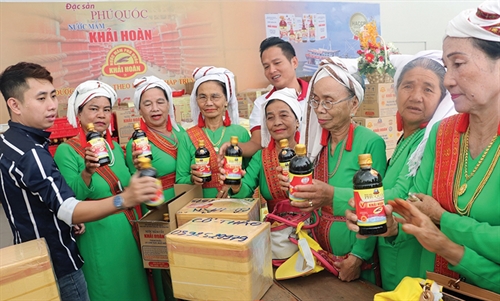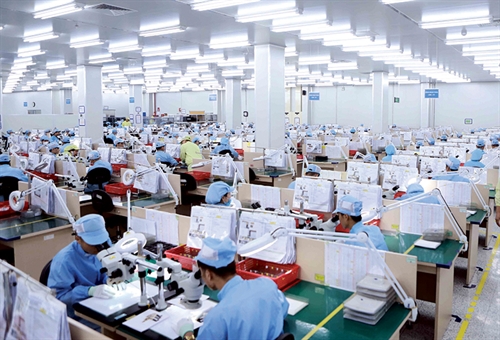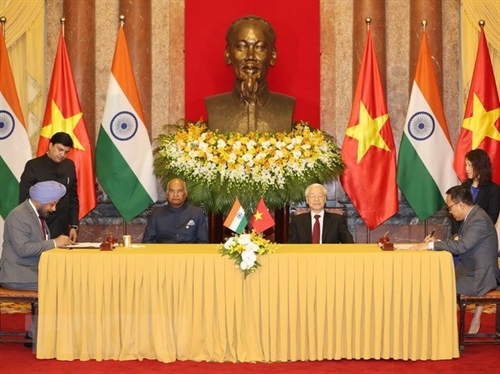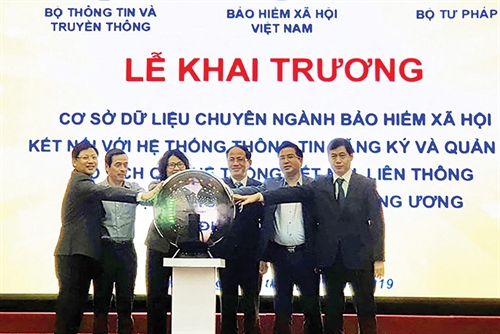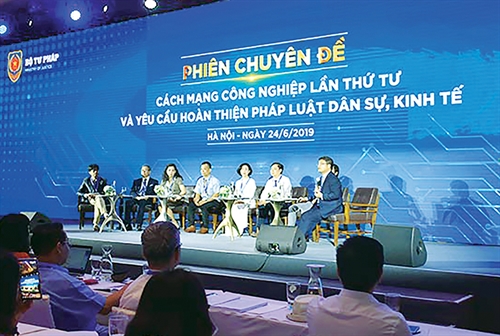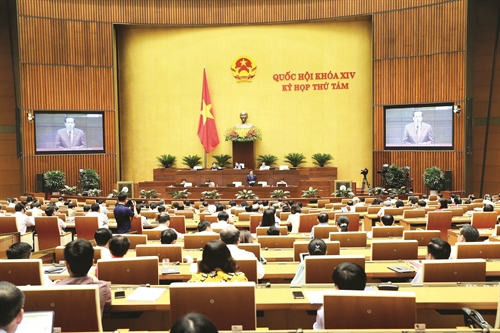This article looks at the EU-Vietnam Free Trade Agreement (EVFTA), recently ratified by the EU Parliament, from the angle of transparency. Reviewing the road from WTO’s limited use of measures to improve transparency and reduce bribery in international trade to new generation FTAs, the paper examines headways made in mainstreaming transparency in practically all chapters of the trade agreement.
 Chris Levon[1]
Chris Levon[1]
International Senior Advisor at Towards Transparency (TT)
chrislevon@towardstransparency.vn
The role of WTO and the emergence of new generation of FTAS
The World Trade Organization (WTO), created in 1995, has nurtured a multilateral landscape built on the underlying principles of transparency and non-discrimination. Its fundamental objective was to gain preferential treatment for goods and services and eliminate non-tariff barriers. Regarding anti-corruption, the WTO has no substantial rules addressing corruption or bribery in trade relations with two exceptions, the Trade Facilitation Agreement (TFA) and the Government Procurement Agreement (GPA). The TFA aims at reducing barriers to trade through streamlining border transactions and increasing the transparency of customs procedures. The GPA is a plurilateral agreement with 48 member countries (including the EU member states) committed to conduct covered procurements in a transparent, predictable and non-discriminatory manner. It is the only WTO agreement that expressly addresses the corruption issue, even though not bindingly, in its preamble.[2]
The failure from WTO members to consensually agree to go significantly further than tariff dismantling and include new policy areas such as the so-called Singapore issues (investment, competition, transparency in government procurement, trade facilitation) led to the multiplication outside of the WTO of bilateral and regional trade agreements (FTA). These trade agreements have progressively evolved into so-called new-generation FTAs, which not only aim at reducing customs duties between states in order to promote trade but also intend to reduce non-tariff barriers. Indeed, the main obstacles today to trade are no longer high tariffs but rather non-tariff measures related to regulatory areas such as environmental and labor standards, but also issues such as governance and transparency.
These new generation of bilateral and regional trade agreements now include wide transparency provisions and progressively integrate anti-corruption items. Some agreements include horizontal chapter on transparency which extends transparency obligations to all policy areas, such as the EU’s Comprehensive Economic and Trade Agreement with Canada (CETA). Others contain anti-corruption provisions, as in the case of new US trade agreements. For instance, one can find an 8-page anti-corruption chapter in the recently adopted US-Mexico-Canada Agreement (USMCA). The Trans-Pacific Partnership Agreement, now called the Comprehensive and Progressive Agreement for Trans-Pacific Partnership, comprises an anticorruption chapter similar to the one found in the USMCA. A transparency chapter that calls on trading partners to pass anticorruption laws can also be found in the Dominican Republic-Central American Free Trade Agreement. These provisions include explicit references to international anti-corruption conventions (such as UNCAC), commitments to criminalize active and passive bribery, whistleblower protection, etc.
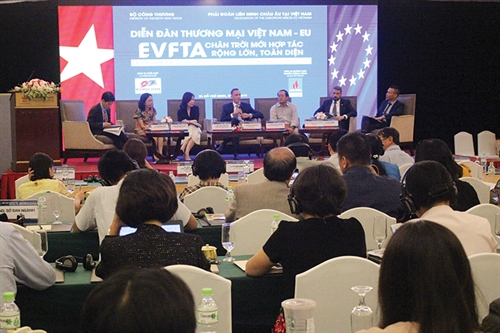 |
| A working session within the Vietnam-EU Trade Forum 2019 under the theme “EVFTA: New horizon for extensive and comprehensive cooperation” in Ho Chi Minh City in July 2019 __Photot: Xuan Anh/VNA |
Where can “transparency” be found in the EVFTA
The EVFTA is the first comprehensive and ambitious trade and investment agreements that the EU has ever concluded with a developing country in Asia. It is the second agreement in the ASEAN region after Singapore, which primary goal is to promote bilateral trade relations between Vietnam and the EU. The concept of transparency embodies the EVFTA in practically all its chapters, starting with its preamble, which “recognizes the importance of transparency in international trade to the benefit of all”. The same preamble can also be found in the EU-Vietnam Investment Protection Agreement (EVIPA), which aims at building a transparent legal and investment environment.
Transparency provisions are to be found in the following chapters.
Customs and trade facilitation
In its Article 4.5 (Simplified Customs Procedures), the EVFTA states that “Each Party shall provide for simplified customs procedures that are transparent and efficient in order to reduce costs and increase predictability for economic operators, including for small and medium-sized enterprises”. Article 4.8 on Transparency states that each Party shall “ensure that its customs and other trade-related laws, regulations and general administrative procedures and other requirements, including fees and charges, are readily available to interested parties and, where feasible and possible, on an official website” and “designate or maintain one or more inquiry or information points to address, within a reasonable time, inquiries by interested parties concerning customs and other trade-related matters”.
These provisions will doubtless contribute to increase customs efficiency, very often hampered in many developing countries by widespread corruption.
Technical barriers to trade (TBT)
In its Article 5.7 (Transparency), both parties “acknowledge the importance of transparency with regard to the preparation, adoption and application of standards, technical regulations and conformity assessment procedures. In that regard, the Parties affirm their transparency obligations under the TBT Agreement”.
Sanitary and phytosanitary measures (SPS)
“The importing Party shall ensure full transparency of its import requirements and procedures” (Article 6.6), while the whole Article 6.12 (Transparency and Exchange of Information) states that both parties shall “ensure transparency as regards SPS measures applicable to trade between them”.
Government procurement
Vietnam has one of the highest ratios of public investment-to-GDP in the world (around 39 percent annually from 1995 against 16 percent in the EU). EU companies will now be able to participate in Vietnam’s procurement tenders above certain thresholds on an equal footing with domestic companies for a selective number of entities such as ministries at central level, public hospitals and some SOEs. Reciprocally, Vietnam’s exporting companies will have access to a 500-million-consumer market. As mentioned above, the revised WTO Government Procurement Agreement recognizes since 2014 in its preamble and Article IV:4 the importance of preventing corruption. The EVFTA commitments on Government Procurement, although not as elaborated, are modeled on the GPA. Moreover, Vietnam has undertaken to join the GPA at a later stage. The trade agreement, in its Article 9.4 (General Principles), states that “a procuring entity shall conduct covered procurement in a transparent and impartial manner that… avoids conflicts of interest and prevents corrupt practices, in accordance with relevant domestic laws and regulations”.
Competition policy
As a general implementation rule, “Each Party shall apply its competition law in a transparent and non-discriminatory manner, including to private and public enterprises, respecting the principles of procedural fairness and rights of defence of the enterprises concerned” (Article 10.3), while Article 10.7 states that “each Party shall ensure transparency in the area of specific subsidies”.
SOEs, enterprises granted special rights or privileges and designated monopolies
In its Article 11.6 (Transparency), the EVFTA states that “A Party which has reasonable reason to believe that its interests under this Chapter are being adversely affected by the commercial activities of a state-owned enterprise, an enterprise granted special rights or privileges, or a designated monopoly of the other Party may request the other Party in writing to provide information about the operations of that enterprise or entity”. To be noted that this article includes in Annex 11-A some exceptions with regard to some activities of several major SOEs (Petrovietnam, EVN, Vinacomin, etc.)
Intellectual property
In its Article 12.33 (Cooperation and Transparency), the EVFTA states that “The Parties shall, either directly or through the Working Group on Intellectual Property Rights… maintain contact on all matters relating to the implementation and functioning of this Sub-Section. In particular, a Party may request from the other Party information relating to product specifications, including any amendments thereto, and relevant contact points for control or management of geographical indications. Each Party may make publicly available the product specifications, or a summary thereof, and relevant contact points for control or management of geographical indications of the other Party protected pursuant to this Sub-Section”.
Sustainable development
The EVFTA comprises a strong chapter on labor and environmental matters relevant to trade relations between the EU and Vietnam, including obligations from both parties regarding a core set of issues. Specifically, investment practices are relevant to foster sustainable development, as well as Corporate Social Responsibility, where reference is made to international principles and OECD guidelines on responsible business conduct (Article 13.10e). Moreover, Article 13.12 (Transparency) states that “Each Party shall, in accordance with its domestic law and Chapter 14 (Transparency), ensure that any measures aimed at protecting the environment and labor conditions that may affect trade and investment are developed, introduced and implemented in a transparent manner, with due notice and an opportunity to interested persons to provide their views”.
Most importantly, to monitor the implementation of the sustainable development chapter, the agreement creates both a special Committee on Trade and Sustainable Development and channels for the involvement of independent civil society, including social partners. At the domestic level, both the EU and Vietnam will consult Domestic Advisory Groups, comprising independent civil society representatives and include employers’ and workers’ organizations, business groups, and environmental organizations.
EVFTA’s transparency provisions will support Vietnam sustainable growth and contribute to level the playing field
FTAs contribute to a fairer business environment. Based on principles of non-discrimination and transparency, they aim at promoting a level playing field between local and foreign companies. Recent so-called new generation FTAs increasingly encourage trading partners to go beyond traditional trade matters and address issues such as labor conditions, environment and corruption. Indeed, besides offering significant economic opportunities, the EU and Vietnam have agreed to implement strong sustainable development measures. Although anti-corruption provisions still remain scarce, the EVFTA’s transparency provisions cover extensively the agreement. In particular, two chapters where companies are often subject to corruption, will hugely benefit from transparency provisions, namely government procurement and customs and trade facilitation. Aiming at greater transparency is obviously a precondition for FTAs’ alignment with the ever stricter legal framework against international corruption and transnational bribery.-
Christian Levon works as an International Senior Advisor at Towards Transparency (TT) with a focus on promoting business integrity. Prior to this, his 35-year career as a trade and economic counsellor at the French Ministry of Economy and Finance took him to various countries such as France, Israel, Korea, Germany and Lithuania. In Belgium, he worked respectively 5 years at the French Permanent Representation to the EU (in charge of EU external Development programs) and 5 years at the European Commission (negotiating FTAs in the field of government procurement). In Vietnam (2008-2012), he promoted bilateral trade with special emphasis on large scale projects.
Christian holds a Master degree in Economics from Nice University (France) and a MBA from Jerusalem Hebrew University (Israel).
